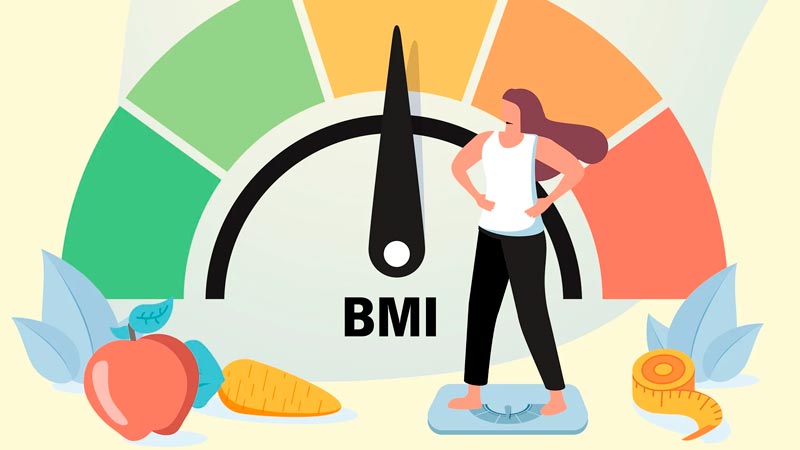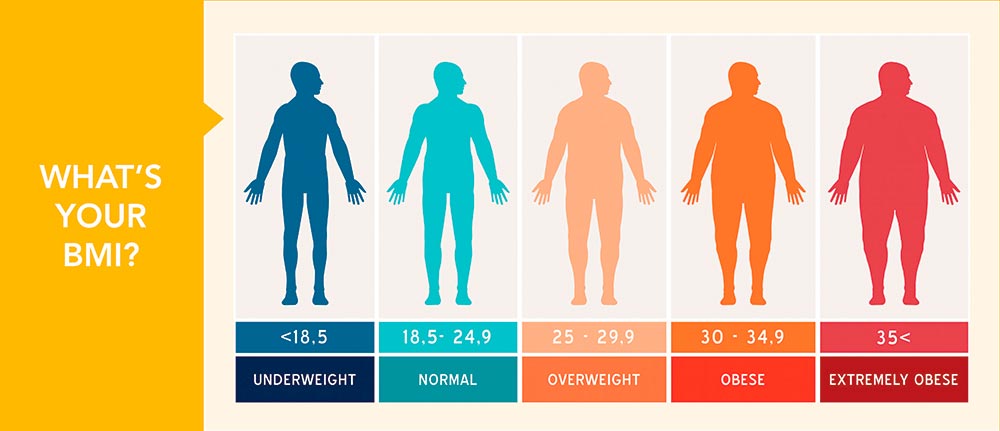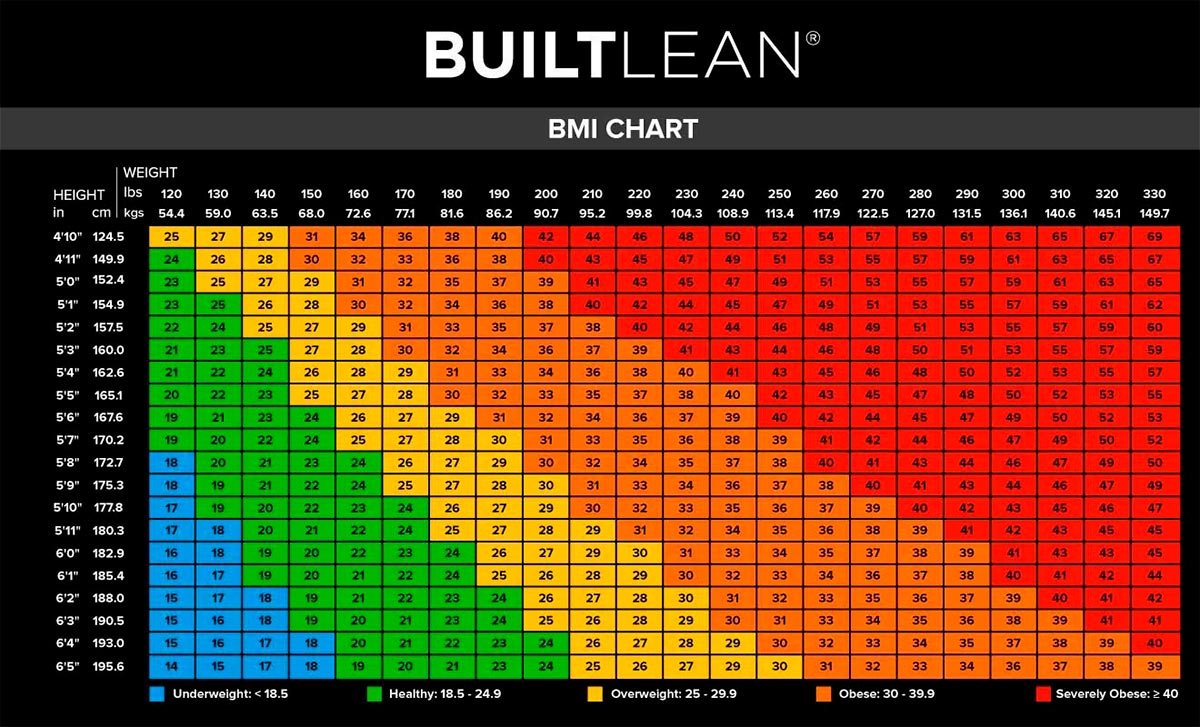A BMI calculator is a tool that is used to determine a person's body mass index (BMI). BMI is a measure of body fat based on a person's height and weight. It is commonly used by healthcare professionals to assess whether a person is underweight, normal weight, overweight, or obese.
Using a BMI calculator is a simple and quick way to determine an individual's BMI. All that is required is the person's height and weight. Once these measurements are entered into the calculator, it will calculate the BMI and provide an interpretation of the result.
It is important to note that BMI is not a perfect measure of body fat, as it does not take into account factors such as muscle mass and bone density. However, it is a useful tool for assessing general health and identifying potential health risks associated with being underweight or overweight.
What Is BMI Calculator

BMI Calculator is a tool that calculates a person's body mass index (BMI) based on their height and weight. BMI is a measure of body fat based on a person's height and weight, and it is commonly used to determine if a person is underweight, normal weight, overweight, or obese.
BMI Calculator is a simple and easy-to-use tool that can be used by anyone. It is commonly used by healthcare professionals, fitness experts, and individuals who want to monitor their weight and body fat. The calculator takes into account a person's height and weight and calculates their BMI, which is then used to determine their body fat percentage.
The formula for calculating BMI is as follows:
BMI = weight (kg) / (height (m))^2
Alternatively, for those using pounds and inches:
BMI = (weight (lb) / (height (in))^2) x 703
Once you have calculated your BMI, it falls into one of the following categories:
- Underweight: BMI less than 18.5
- Normal Weight: BMI between 18.5 and 24.9
- Overweight: BMI between 25 and 29.9
- Obese: BMI of 30 or greater

The BMI Calculator is a useful tool for people who are trying to lose weight, gain weight, or maintain their current weight. It can help individuals set realistic weight loss goals and track their progress over time. It can also help individuals identify if they are at risk for health problems associated with being overweight or obese, such as heart disease, diabetes, and high blood pressure.
Overall, the BMI Calculator is a valuable tool for anyone who wants to monitor their weight and body fat percentage. It is easy to use, accurate, and can provide valuable information about a person's health and well-being.
Importance of BMI Calculator
Body Mass Index (BMI) is a widely used tool for determining whether a person is underweight, normal weight, overweight, or obese. BMI is a simple calculation based on a person's height and weight. It is a useful tool for assessing health risks associated with weight.
BMI calculator is an important tool to track an individual's weight and assess their risk of developing health problems related to being overweight or obese. It is a simple and easy-to-use tool that can be accessed online or through various mobile applications.
In addition to helping people monitor their weight, BMI calculator is also useful for healthcare professionals. It is an important tool for doctors and nurses to assess a patient's risk of developing health problems related to weight. BMI calculator can be used to identify patients who are at risk of developing conditions such as diabetes, heart disease, and high blood pressure.
Overall, BMI calculator is an important tool for maintaining good health. It is a simple and easy-to-use tool that can help people monitor their weight and assess their risk of developing health problems related to being overweight or obese.
How to Use a BMI Calculator
Using a BMI calculator is a quick and easy way to determine your body mass index (BMI). Here are the steps to follow when using a BMI calculator:
1. First, enter your height and weight into the calculator. Make sure to use accurate measurements, as even small errors can affect the accuracy of your BMI calculation.
2. Once you've entered your height and weight, the calculator will provide you with your BMI score. This score will fall into one of four categories: underweight, normal weight, overweight, or obese.
3. After determining your BMI score, it's important to understand what it means. A BMI score of less than 18.5 is considered underweight, while a score between 18.5 and 24.9 is considered normal weight. Scores between 25 and 29.9 indicate overweight, and scores of 30 or higher indicate obesity.
4. Finally, it's important to remember that BMI is just one indicator of overall health. Other factors, such as muscle mass, body composition, and overall fitness level, should also be taken into consideration when assessing your health.
Overall, using a BMI calculator is a simple and effective way to gain insight into your overall health and fitness level. By following these steps, you can quickly and easily determine your BMI score and gain a better understanding of your overall health.
Interpreting BMI Results
When using a BMI calculator, it is important to understand the significance of the results. BMI results are not a perfect measure of health, but they can be used as a general indicator of whether someone is underweight, normal weight, overweight, or obese.
Underweight
A BMI below 18.5 is considered underweight. This may indicate that a person is not getting enough nutrients or calories, and could be at risk for health problems such as malnutrition or osteoporosis. If someone has a BMI in this range, they should consult a healthcare professional to determine if they need to make changes to their diet or lifestyle.
Normal Weight
A BMI between 18.5 and 24.9 is considered normal weight. This is generally considered a healthy range, but it is still important to maintain a healthy lifestyle to avoid health problems in the future.
Overweight
A BMI between 25 and 29.9 is considered overweight. This may indicate that a person is carrying excess weight, which can increase the risk of health problems such as heart disease, stroke, and diabetes. If someone has a BMI in this range, they should consult a healthcare professional to determine if they need to make changes to their diet or lifestyle.
Obesity
A BMI of 30 or higher is considered obese. This indicates that a person is significantly overweight and may be at risk for serious health problems such as heart disease, stroke, and diabetes. If someone has a BMI in this range, they should consult a healthcare professional to determine if they need to make changes to their diet or lifestyle.
It is important to note that BMI is not a perfect measure of health, and there are other factors that can impact a person's health beyond their weight. However, understanding BMI results can be a helpful tool in maintaining a healthy lifestyle.

Benefits of a Normal BMI
Keeping your BMI within the normal range (18.5 to 24.9) offers a multitude of benefits, effectively reducing your vulnerability to the health issues mentioned earlier. By maintaining a normal BMI, you not only lower your chances of developing high blood pressure, heart disease, or diabetes, but you also unlock several other advantages that contribute to an overall healthier and more energetic life.
1. Reduced Health Risks: Maintaining a normal BMI significantly lowers the risk of various weight-related health problems, including coronary heart disease, hypertension, and type 2 diabetes.
2. Enhanced Sleep Quality: Achieving and maintaining a healthy BMI can lead to better sleep patterns. Reduced weight-related discomfort and improved breathing can translate into improved sleep quality.
3. Improved Circulation: A normal BMI promotes healthier circulation, reducing the strain on the heart and blood vessels. This, in turn, lowers the risk of cardiovascular issues and contributes to overall better circulation.
4. Increased Energy Levels: Individuals with a normal BMI often report higher energy levels throughout the day. This increased vitality can enhance one's ability to engage in physical activities and maintain an active lifestyle.
Health Risks Related to Low BMI
People who are underweight according to the BMI scale can be predisposed to:
- Poor immune system
- Nutrient deficiencies
- Osteoporosis
- Cardiovascular disease
- Depression
- Dry skin
- Hair loss
- Irregular menstruation (in women)
- Difficulty conceiving (in women)
Health Risks Related to High BMI
People who are overweight or obese have an increased risk for:
- Hypertension
- Coronary heart disease
- Stroke
- Type 2 diabetes
- Osteoarthritis
- Sleep apnea and respiratory problems
- Some cancers
Factors Affecting BMI
BMI, or Body Mass Index, is a measure of body fat based on a person's height and weight. While it is a useful tool to assess a person's weight status, it is important to note that BMI does not take into account other factors that may affect a person's health.
Here are some factors that can affect BMI:
Age
As people age, their metabolism slows down, and they tend to lose muscle mass. This leads to a decrease in BMI, which can be misleading. Therefore, it is important to consider other factors such as body composition and waist circumference when assessing the health of older adults.
Gender
Men and women may have different body compositions, which can affect their BMI. For example, women tend to have more body fat than men, while men tend to have more muscle mass. Therefore, BMI may not be an accurate measure of body fat for both genders.
Muscle Mass
People with more muscle mass tend to have a higher BMI, even if they have a low body fat percentage. This is because muscle weighs more than fat. Therefore, athletes and bodybuilders may have a higher BMI, but it does not necessarily mean that they are overweight or obese.
Ethnicity
Different ethnic groups may have different body compositions, which can affect their BMI. For example, people of Asian descent tend to have a higher body fat percentage than people of European descent with the same BMI. Therefore, it is important to consider other factors such as waist circumference and body composition when assessing the health of people from different ethnic backgrounds.
Health Conditions
Certain health conditions such as hypothyroidism, Cushing's syndrome, and polycystic ovary syndrome can affect a person's metabolism and lead to weight gain. Therefore, BMI may not be an accurate measure of body fat for people with these conditions. It is important to consider other factors such as waist circumference and body composition when assessing their health.
While BMI is a useful tool to assess a person's weight status, it is important to consider other factors that may affect their health. Factors such as age, gender, muscle mass, ethnicity, and health conditions can all affect BMI. Therefore, it is important to use BMI in conjunction with other measures such as waist circumference and body composition to get a more accurate assessment of a person's health.
Limitations of BMI Calculator
While BMI (Body Mass Index) is a widely used and accepted measure of body fatness, it has its limitations. Here are a few limitations of the BMI calculator:
1. Does not differentiate between fat and muscle mass
BMI is calculated by dividing a person's weight (in kilograms) by their height (in meters) squared. This calculation does not differentiate between fat and muscle mass. Thus, a muscular person may have a high BMI, but that does not necessarily mean that they have a high level of body fat.
2. Does not consider body composition
BMI does not take into account body composition, which refers to the amount of fat, muscle, and bone in the body. For example, two people with the same BMI could have different body compositions, with one having more muscle mass and the other having more fat mass.
3. Does not consider age and gender
BMI does not consider age and gender, which can also affect body fat distribution. For example, women tend to have a higher percentage of body fat than men, and older adults tend to have more body fat than younger adults.
4. Does not consider ethnicity
BMI does not consider ethnicity, which can also affect body fat distribution. For example, people of Asian descent tend to have a higher percentage of body fat than people of European descent, even at the same BMI.
While BMI is a useful tool for assessing body fatness, it has its limitations. It is important to consider other factors, such as body composition, age, gender, and ethnicity, when evaluating a person's overall health.
Alternatives to BMI Calculator
While BMI is a widely used tool to determine if someone is underweight, normal weight, overweight, or obese, it is not always the most accurate measure of body fat. Here are some alternatives to BMI that individuals can use to assess their health:
Waist-to-Height Ratio
Waist-to-height ratio is a simple and effective measure of body fat that compares an individual's waist circumference to their height. A waist-to-height ratio of 0.5 or less is considered healthy, while a ratio greater than 0.5 indicates an increased risk of health problems.
Body Fat Percentage
Body fat percentage measures the amount of fat in an individual's body in relation to their total body weight. This can be determined through various methods such as skinfold calipers, bioelectrical impedance, or dual-energy X-ray absorptiometry (DEXA) scans. A healthy body fat percentage varies by age and gender, but generally ranges from 10-30%.
Waist Circumference
Waist circumference is a measure of abdominal fat that can be used to determine an individual's risk for health problems such as heart disease, diabetes, and stroke. A waist circumference of 35 inches or less for women and 40 inches or less for men is considered healthy.
Body Shape Index (ABSI)
The Body Shape Index (ABSI) is a measure of abdominal obesity that takes into account waist circumference, height, and weight. It is a more accurate predictor of mortality risk than BMI and can be calculated using an online calculator.
While these alternatives to BMI can provide a more accurate assessment of an individual's health, it is important to note that they are not perfect measures and should be used in conjunction with other health indicators such as blood pressure, cholesterol levels, and physical activity levels.
BMI is a valuable tool for assessing and monitoring weight-related health risks for the general population. It offers a quick and straightforward way to gauge whether an individual is underweight, of normal weight, overweight, or obese.
However, it's essential to recognize its limitations and understand that it provides a simplified view of health. It's always a good idea to consult with a healthcare professional for a more comprehensive evaluation of your health and to discuss any concerns related to your weight and overall well-being.
While BMI is a useful starting point, it's only one piece of the puzzle in the broader context of individual health.



